Related Research Articles

Dexter Avenue Baptist Church is a Baptist church in Montgomery, Alabama, United States, affiliated with the Progressive National Baptist Convention. The church was designated as a National Historic Landmark in 1974 because of its importance in the civil rights movement and American history. In 1978 the official name was changed to the Dexter Avenue King Memorial Baptist Church, in memory of Dr. Martin Luther King Jr., who was pastor there and helped organize the Montgomery bus boycott in 1955 during the civil rights era. The church is located steps away from the Alabama State Capitol.
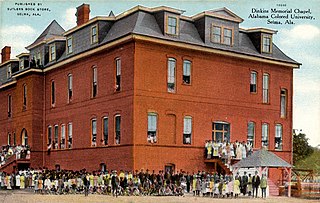
Selma University is a Private historically black Baptist Bible college in Selma, Alabama. It is affiliated with the Alabama State Missionary Baptist Convention.
Wallace Augustus Rayfield (1874–1941), was an American architect and educator. He was the second formally educated practicing African American architect in the United States.
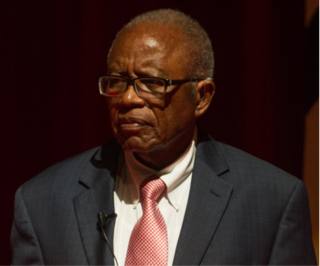
Fred David Gray is an American civil rights attorney, preacher, activist, and state legislator from Alabama. He handled many prominent civil rights cases, such as Browder v. Gayle, and was elected to the Alabama House of Representatives in 1970, along with Thomas Reed, both from Tuskegee. They were the first black state legislators in Alabama in the 20th century. He served as the president of the National Bar Association in 1985, and in 2001 was elected as the first African-American President of the Alabama State Bar.

William Parish Chilton was an American politician and author who served as a Deputy from Alabama to the Provisional Congress of the Confederate States from 1861 to 1862.
The Alabama Baptist Convention is an autonomous association of Baptist churches in the U.S. state of Alabama formed in 1823. It is one of the state conventions associated with the Southern/Great Commission Baptists.
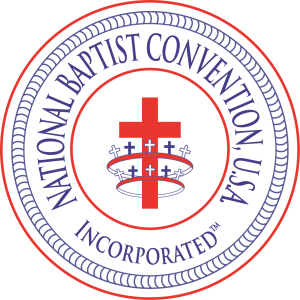
The National Baptist Convention, USA, Inc., more commonly known as the National Baptist Convention, is a primarily African American Baptist Christian denomination in the United States. It is headquartered at the Baptist World Center in Nashville, Tennessee and affiliated with the Baptist World Alliance. It is also the largest predominantly Black Christian denomination in the United States and the second largest Baptist denomination in the world.
Eldred Burder "E. B." Teague was an Alabama Baptist minister and educational leader of the 19th century.
The Presbytery of Sheppards and Lapsley is an administrative district of the Presbyterian Church (USA) which comprises some 94 churches in central Alabama. The Presbytery of Sheppards and Lapsley is one of three presbyteries located in Alabama, and one of twelve comprising the "Synod of Living Waters" in Alabama, Mississippi, Tennessee and Kentucky. The Presbytery of Sheppards and Lapsley was established on January 11, 1988 at the First Presbyterian Church of Selma as a merger of several presbyteries from the former Presbyterian Church in the United States and United Presbyterian Church in the United States of America, the national bodies of which merged in 1983 to form the present PC (USA). PSL's headquarters are located at 3603 Lorna Ridge Drive in Hoover. The (interim) Executive Presbyter is Sue Westfall. Associate executive presbyters oversee divisions focusing on "Nurture" and "Missions". A video resource library is maintained at the Presbytery offices. The Presbytery operates two retreat centers, the Gulftreat camp in Panama City Beach, Florida and Living River, a retreat on the Cahaba River south of Birmingham.

James Harvey DeVotie (1814–1891) was a Baptist minister in the American South. Born in Oneida County, New York, he was a pastor in South Carolina, Alabama and Georgia. He was a co-founder of Howard College in Marion, Alabama, later known as Samford University near Birmingham. He was a long-time trustee of Mercer University in Macon, Georgia. He served as a Confederate chaplain during the Civil War. After the war, he worked for the Southern Baptist Convention.
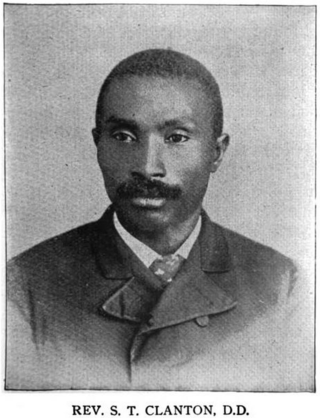
Solomon T. Clanton was a leader in the Baptist Church. He was educated in New Orleans and Chicago and became the first black graduate of the theological department at the Baptist Union Theological Seminary at Morgan Park, Chicago, Illinois, associated with the University of Chicago. He spent his career as an educator and leader in the Baptist Church. He served as a professor at Leland University, Alabama A&M University, and Selma University, and before his death as assistant librarian at the University of Chicago. He was acting president for a short time at Alabama A&M and was dean of the theological department at Selma University. During his career, he was also an educator in high schools and Sunday schools.
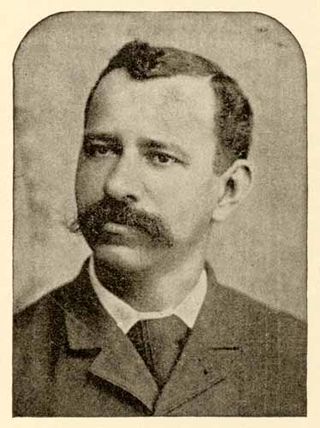
Charles L. Purce was an educator in Louisville, Kentucky, and Selma, Alabama. He was a leader in the Baptist church and president of Selma University and Simmons College of Kentucky, both Baptist institutions.

William R. Pettiford was a minister and banker in Birmingham, Alabama. Early in his career he worked as a minister and teacher in various towns in Alabama, moving to the 16th Street Baptist Church in 1883 and serving there for about ten years. In 1890 he founded the Alabama Penny Savings Bank. It played an important role in black economic development in Alabama and in the South during the 25 years it existed. Pettiford has been called the most significant institutional builder and leader in the African American community in Birmingham during the period in which he lived. In 1897 he was said to be next to Booker T. Washington the black man who has done the most in the South for blacks.
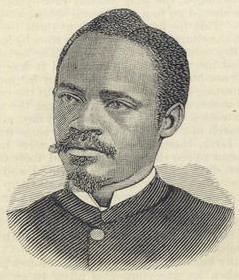
Emanuel K. Love was a minister and leader in the Baptist church from Savannah, Georgia. He was pastor of one of the largest churches in the country and was a prominent activist for black civil rights and anti-lynching laws. He played an important role in establishing separate black Baptist national organizations and advocating for black leadership of Baptist institutions, especially schools.

Edward McKnight Brawley was an American educator and minister in North Carolina and South Carolina. He was the first African American to attend Bucknell University. He was an important figure in the development of the African-American church in South Carolina and the American southeast and helped found numerous churches and schools, including the Benedict Institute and Morris College. He served as president at Morris and, earlier, at Selma University. Later in his career he was a professor at Shaw University. He was also a prominent pastor at numerous churches and an important figure in civil rights and religious affairs.
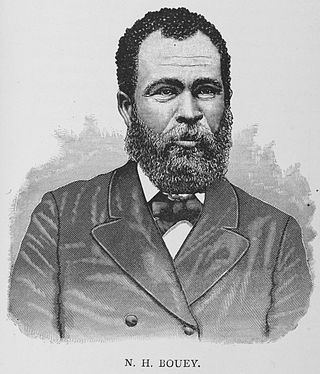
Harrison N. Bouey was a minister in South Carolina, Alabama, and Missouri and a missionary in Liberia. He was noted as a leader in efforts to help Africans emigrate to Africa at the end of reconstruction in the 1870s. He was also involved in education in the south, and was an early leader of Selma University in Selma, Alabama and co-founder of Western College Preparatory School in Macon, Missouri.
The Tuskegee News is a weekly newspaper based in Tuskegee, Alabama with a circulation of about 3,800. The paper was established in 1865 by A. F. Henderson & Co.

Alexander H. Curtis was a state legislator in the Alabama House of Representatives and the Alabama Senate during the Reconstruction era.

The Alabama Black Belt National Heritage Area is a National Heritage Area encompassing Bibb, Bullock, Butler, Choctaw, Clarke, Conecuh, Dallas, Greene, Hale, Lowndes, Macon, Marengo, Monroe, Montgomery, Perry, Pickens, Sumter, Washington, and Wilcox counties in the Black Belt region of Alabama. The Center for the Study of the Black Belt at the University of West Alabama serves as the local coordinating authority.
References
- 1 2 3 4 5 6 7 Simmons, William J., and Henry McNeal Turner. Men of Mark: Eminent, Progressive and Rising. GM Rewell & Company, 1887. p524-529
- 1 2 Bailey, Richard. Neither carpetbaggers nor scalawags: Black officeholders during the Reconstruction of Alabama, 1867-1878. NewSouth Books, 2010. p153
- ↑ Ebony Fashion Fair, Ebony, Johnson Publishing Company, April 1991, page 114
- ↑ Martin, Sandy Dwayne. Black Baptists and African missions: The origins of a movement, 1880-1915. Mercer University Press, 1989. p141-142
- ↑ [No Headline] Seattle Daily Times (Seattle, Washington) Wednesday, May 31, 1978 Page: 4
- ↑ Negro Educator Dead Rev. W. H. Mcalpine Passes Away in Selma Montgomery Advertiser (Montgomery, Alabama) Saturday, November 4, 1905, Volume: LXXVI Issue: 308 Page: 10
- ↑ Smith, Jessie Carney, ed. Encyclopedia of African American Popular Culture, Volume 1 [4 volumes]. ABC-CLIO, 2010. p415
- ↑ Rev R. B. McAlpine, '70, Dies at Age of 73 Years, The Davidonian (Davidson, North Carolina) March 4, 1921, page 6, accessed October 19, 2016 at https://www.newspapers.com/clip/7094143//